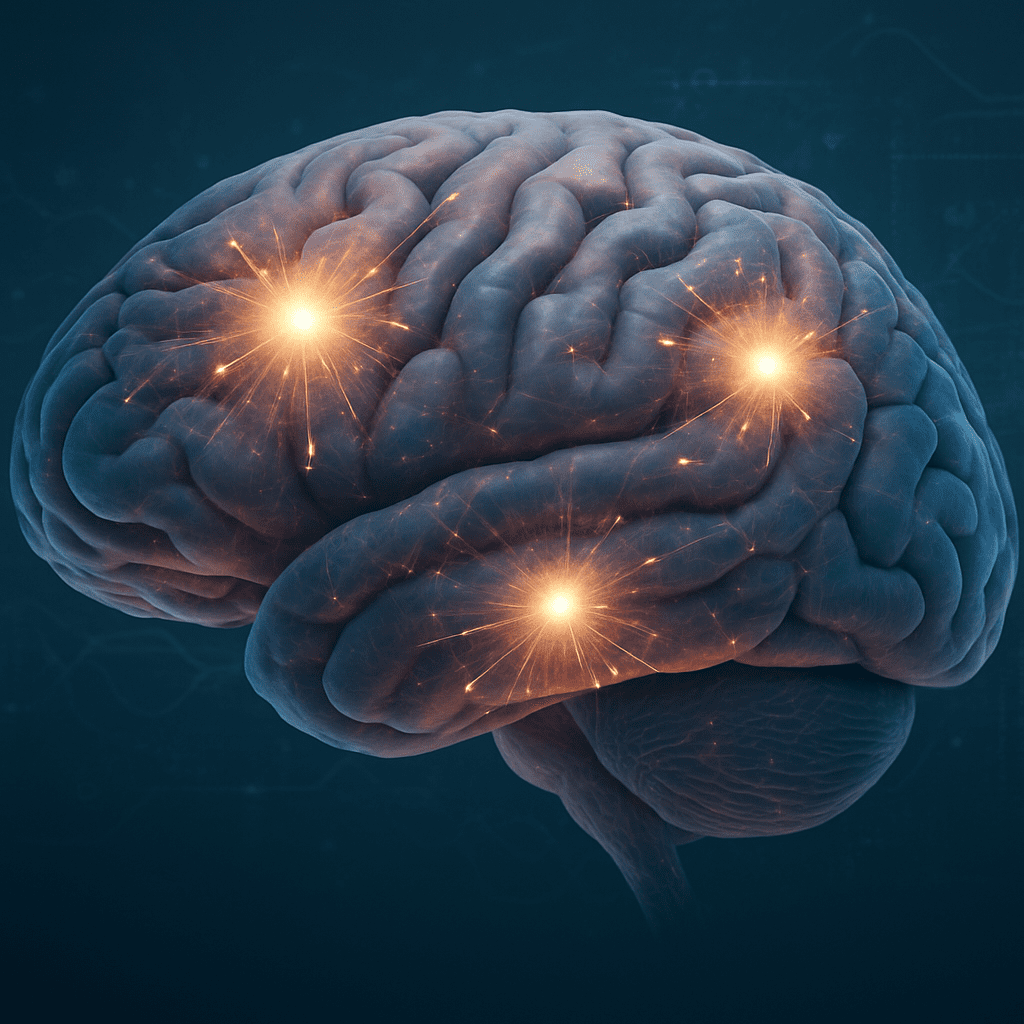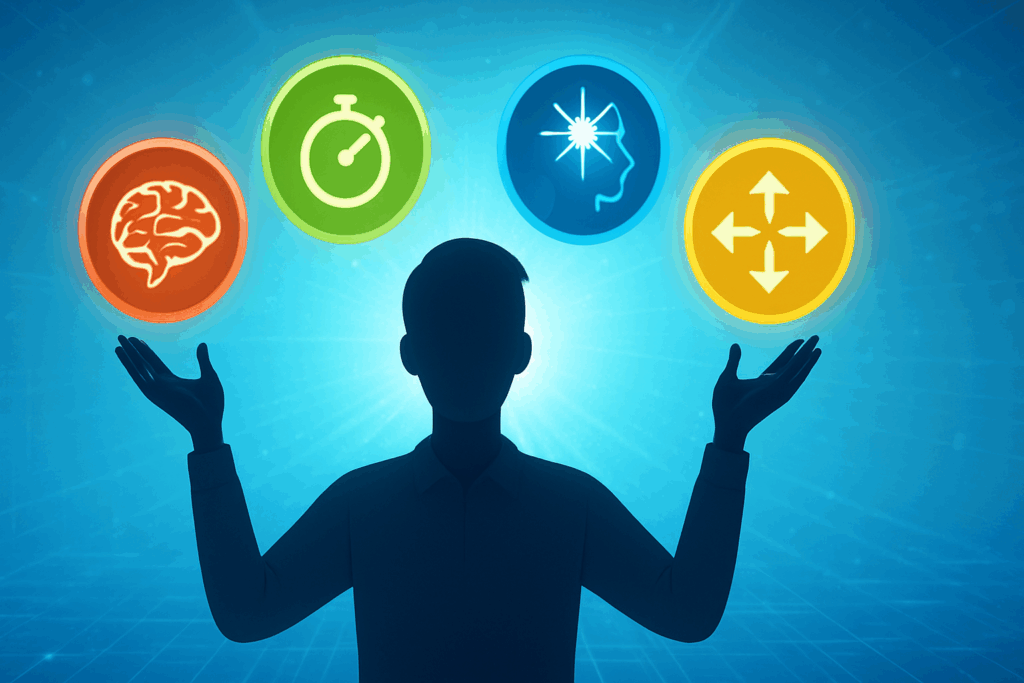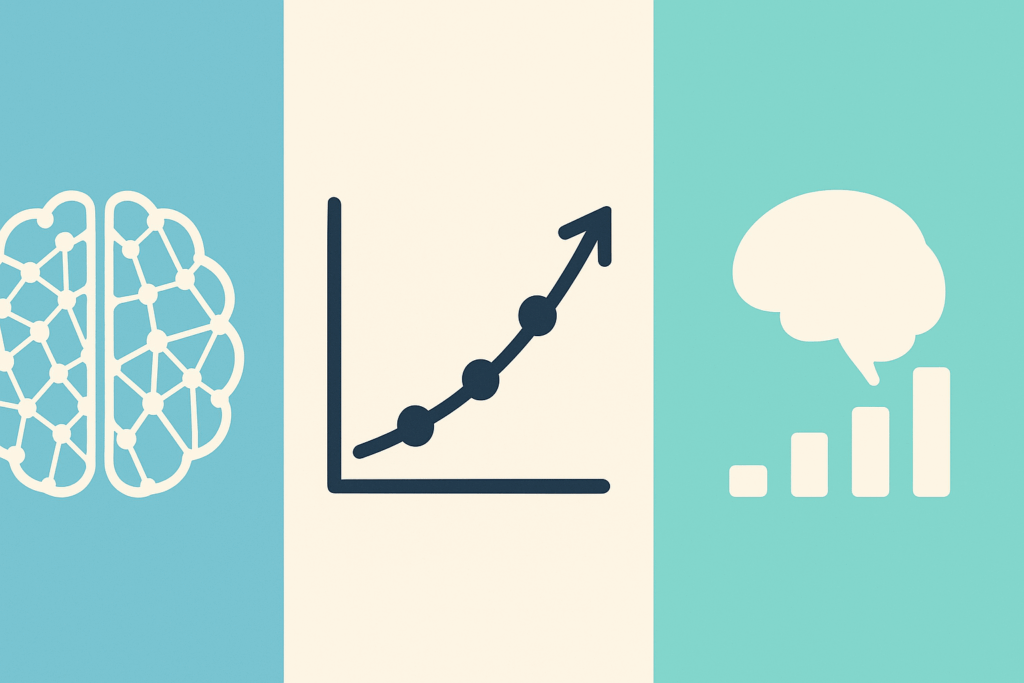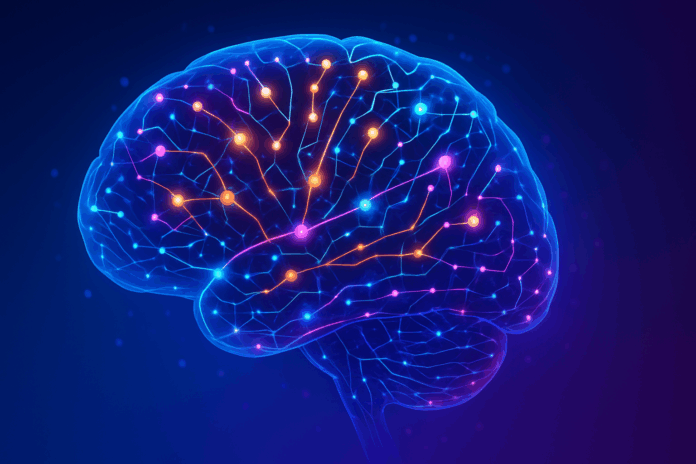Introduction: Exploring Digital Neuroplasticity in the Modern Age
In today’s fast-paced world, where mental agility and sustained cognitive performance are more important than ever, digital tools designed to enhance brain function have gained remarkable popularity. Among the leading platforms in this field is the BrainHQ app, developed by the neuroscience-based company Posit Science. As cognitive decline becomes an increasing concern with age, and attention deficits appear more frequently across all age groups, tools that promise to strengthen memory, sharpen focus, and support brain IQ have attracted considerable interest. These technologies are not mere digital novelties; they are grounded in decades of neuroscience and offer measurable outcomes rooted in the principles of neuroplasticity. For individuals seeking proactive ways to maintain or improve their mental acuity, understanding how these tools work and what they truly offer is essential.
The field of cognitive training has evolved dramatically from simple puzzles and memory games to evidence-based interventions supported by peer-reviewed research. The BrainHQ app, a flagship product of Posit Science, is among the most scientifically validated platforms in this domain. As BrainHQ reviews continue to grow in number and credibility, both health professionals and individuals are increasingly turning to it as a potential solution for enhancing brain IQ and fostering lifelong cognitive resilience. This article delves deeply into the mechanisms, scientific foundations, and practical applications of BrainHQ and other Posit Science tools, revealing how they may play a transformative role in mental health and wellness across the lifespan.
You may also like: Boost Brain Power Naturally: Evidence-Based Cognitive Training Activities and Memory Exercises That Support Long-Term Mental Health

Understanding BrainHQ: A Neuroscience-Driven Cognitive Training Platform
BrainHQ is not just another brain game app. It is the culmination of years of research by top neuroscientists, including Dr. Michael Merzenich, a pioneer in the field of neuroplasticity. Designed to challenge the brain across multiple cognitive domains, the BrainHQ app offers exercises targeting attention, memory, brain speed, people skills, navigation, and intelligence. Unlike conventional games, which often focus solely on entertainment, this platform uses adaptive algorithms that adjust in real time to the user’s performance, ensuring that the cognitive load remains optimal for neuroplastic change.
What sets the BrainHQ app apart is its scientific pedigree. Each task is informed by neuroscience research that has demonstrated the brain’s capacity to reorganize itself in response to training. For example, tasks involving rapid visual processing can stimulate changes in the brain’s speed of processing information, a fundamental aspect of higher-order thinking. Improvements in this domain can enhance everything from decision-making under pressure to reaction time while driving. Such real-world applications make the training highly relevant to daily functioning.
Moreover, the app’s modular structure allows users to target specific areas of concern. For individuals experiencing mild cognitive impairment or age-related memory lapses, memory-focused exercises may provide noticeable benefits. For younger users or those seeking to boost productivity, the attention and brain speed modules offer a way to sharpen mental focus. This adaptability, coupled with the ability to track progress over time, offers users not only personalized brain training but also a tangible sense of achievement and motivation.

Scientific Evidence Supporting the Effectiveness of BrainHQ and Posit Science Tools
The effectiveness of the BrainHQ app is supported by over 100 peer-reviewed studies, many of which have been published in reputable journals such as The Journal of the American Geriatrics Society and Proceedings of the National Academy of Sciences. One of the most frequently cited studies involved a large-scale randomized controlled trial sponsored by the National Institutes of Health, known as the ACTIVE study (Advanced Cognitive Training for Independent and Vital Elderly). Participants who engaged in cognitive training using BrainHQ-like methods showed sustained improvements in cognitive performance up to ten years after the initial training.
Importantly, these cognitive gains were not limited to improvements on the tasks themselves. Researchers observed transfer effects, meaning that gains in brain speed and memory translated into improved real-world outcomes such as better daily functioning, increased confidence in managing finances, and even fewer car accidents among older adults. These findings suggest that the BrainHQ app may indeed offer more than just digital amusement—it holds potential for long-term cognitive health.
Posit Science has also been actively involved in research on populations with cognitive challenges, including individuals with schizophrenia, multiple sclerosis, and traumatic brain injuries. In these groups, the use of Posit Science tools has led to measurable improvements in attention, working memory, and processing speed. These studies support the idea that cognitive training can be a valuable adjunct to traditional therapies, providing a non-invasive and drug-free option for brain rehabilitation.

How BrainHQ May Improve Brain IQ and Mental Agility
The term “brain IQ” is often used colloquially to refer to an individual’s mental sharpness, problem-solving ability, and adaptability in complex situations. While traditional IQ tests measure a range of cognitive functions, brain IQ in the context of this discussion refers to functional cognitive performance that is adaptable and responsive to training. The BrainHQ app is specifically designed to enhance the underlying neural systems that support this type of intelligence.
BrainHQ training improves cognitive flexibility—the brain’s ability to shift attention, update memory, and adapt to new situations. This flexibility is critical in both academic and professional settings, where individuals must process large amounts of information and make quick decisions. For example, a manager balancing multiple projects or a student preparing for exams can benefit from enhanced working memory and attention control, both of which are central targets of BrainHQ exercises.
Furthermore, enhanced brain IQ can positively influence emotional regulation and social intelligence. Some modules within the BrainHQ app focus on recognizing emotional expressions and understanding nonverbal cues. These people skills are essential for effective communication and conflict resolution, especially in emotionally charged environments. By strengthening these cognitive and emotional competencies, the app helps users cultivate a more holistic intelligence that serves them in all aspects of life.
Why BrainHQ Reviews Reflect Growing Trust in Cognitive Training Tools
As digital health tools become more widespread, user feedback serves as an important measure of both perceived value and actual benefit. BrainHQ reviews across app stores, medical platforms, and user testimonials reflect a generally positive reception. Users frequently note improvements in memory recall, mental clarity, and reaction times. For many, these changes translate into better performance at work, enhanced relationships, and a more confident engagement with daily tasks.
These positive BrainHQ reviews are not just anecdotal. Many users appreciate the app’s user-friendly interface, personalized training paths, and evidence-based credibility. Unlike generic brain games, the BrainHQ app offers detailed progress tracking and feedback, allowing users to see their cognitive improvements over time. This feedback loop reinforces motivation and helps users stay committed to their cognitive health goals.
Healthcare professionals have also contributed to the growing body of BrainHQ reviews, often recommending the app to patients dealing with early cognitive decline or seeking preventive strategies. The endorsement by neurologists, occupational therapists, and psychologists adds a layer of trust and credibility that distinguishes the BrainHQ app from less scientifically grounded alternatives. Such clinical validation further strengthens its position in the digital cognitive training space.

Comparing BrainHQ to Other Digital Cognitive Platforms
While the market is saturated with apps that promise to enhance brain performance, the BrainHQ app stands out due to its empirical foundation and structured approach to neuroplasticity. Many brain training platforms offer superficial tasks with minimal challenge or scientific oversight. In contrast, BrainHQ’s exercises are crafted to target specific neural pathways and adapt in complexity as the user’s performance improves.
For instance, Lumosity and Elevate are two popular alternatives, but they often emphasize entertainment over scientifically validated outcomes. Though enjoyable, their exercises may not provide the same depth of cognitive engagement as those found in the BrainHQ app. In side-by-side comparisons conducted by independent researchers, BrainHQ consistently demonstrates stronger effects on processing speed, memory retention, and real-world task performance.
Moreover, the involvement of Posit Science in academic collaborations and clinical trials gives the BrainHQ app a research pedigree that few competitors can match. Users interested in long-term cognitive health—rather than short-term entertainment—are increasingly recognizing this distinction. As more individuals and health professionals seek tools that balance engagement with efficacy, the BrainHQ app continues to earn its reputation as a leader in the field.

The Role of the Posit Science App in Mental Health and Aging
The Posit Science app, which encompasses BrainHQ and related tools, plays a growing role in mental wellness and healthy aging. As life expectancy increases, maintaining cognitive health into the later decades of life has become a major public health goal. Tools like the Posit Science app are emerging as viable solutions for older adults seeking to preserve independence, reduce dementia risk, and remain mentally sharp.
Numerous studies support the idea that cognitive training through the Posit Science app can help delay or reduce age-related cognitive decline. This is particularly relevant given the increasing prevalence of Alzheimer’s disease and other forms of dementia. By engaging in regular, structured cognitive activity, older adults may strengthen neural pathways that would otherwise deteriorate due to disuse. This “use it or lose it” principle is a cornerstone of neuroplasticity theory and serves as a foundational concept for the design of the Posit Science app.
Beyond aging, the app is also being used in mental health interventions targeting depression, anxiety, and cognitive impairment following chemotherapy (often called “chemo brain”). These applications reflect the app’s versatility and growing importance in both clinical and non-clinical settings. With continued innovation and research, the Posit Science app may play a vital role in reshaping how society approaches cognitive wellness at every stage of life.
Practical Considerations: Who Should Use the BrainHQ App and How to Get Started
While the BrainHQ app is suitable for a broad range of users, certain populations may find particular benefit. Older adults seeking to maintain mental acuity, individuals recovering from brain injuries, professionals aiming to boost productivity, and students working to improve focus all stand to gain from targeted cognitive training. Importantly, the app is accessible on multiple platforms, including desktop and mobile, making it easy to integrate into daily routines.
Getting started typically involves a short assessment to identify strengths and areas for improvement. Based on this, the app generates a customized training plan. Users are encouraged to train regularly, with even short daily sessions shown to produce measurable cognitive improvements. The flexibility of the platform allows users to train at their own pace and according to their own goals, whether those involve enhancing brain IQ, boosting memory, or improving attention span.
Subscription plans are available, though many health plans and clinical programs offer access to the BrainHQ app at no cost to eligible participants. This broad accessibility reflects a growing recognition of cognitive training as a pillar of preventive health. As the lines between digital health and traditional care continue to blur, tools like the BrainHQ app are poised to become mainstays in both personal and public health strategies.
FAQ: BrainHQ App, Brain IQ, and Posit Science Tools for Cognitive Health
1. What are some lesser-known features of the BrainHQ app that experienced users often rely on?
While many users focus on the core cognitive exercises of the BrainHQ app, experienced users often take full advantage of the program’s detailed performance analytics. These metrics offer more than simple progress tracking; they provide granular insights into individual strengths and weaknesses across various cognitive domains. For instance, users can identify how their auditory memory compares to visual attention or how quickly they adapt to new patterns in problem-solving tasks. This level of feedback allows for micro-adjustments in both personal goals and cognitive strategies. What sets the BrainHQ app apart is the ability to tailor the experience not just to general goals like “improve memory” but to nuanced objectives like enhancing auditory processing under pressure. These capabilities are particularly beneficial for professionals in high-stakes environments who rely on rapid cognitive flexibility. Additionally, advanced users often create hybrid training routines that combine modules to simulate real-world cognitive demands, such as multitasking or decision-making under stress. These routines mimic real-life scenarios more closely and provide functional, rather than just theoretical, brain IQ improvements. In BrainHQ reviews from users in clinical and academic settings, this customized approach is often cited as a significant reason for long-term engagement. The depth of the platform supports a much richer experience than simply playing brain games, particularly for those who want to push cognitive performance beyond surface-level gains.
2. Can the BrainHQ app help people manage work-related cognitive fatigue or mental burnout?
Yes, the BrainHQ app has shown promise in helping users manage cognitive fatigue and burnout, particularly among professionals with mentally demanding roles. While the app is not a substitute for rest or medical treatment, it provides targeted exercises that can improve brain resilience, especially in tasks requiring sustained attention and rapid information processing. By strengthening cognitive control mechanisms, users often report an improved ability to filter distractions, switch tasks more effectively, and recover more quickly from mental exhaustion. BrainHQ reviews from executives, healthcare workers, and tech professionals frequently mention the app’s usefulness in reducing feelings of cognitive overload. One advantage is the app’s flexibility—sessions can be customized to suit short breaks during the workday, serving as a form of “cognitive reset” without demanding extensive time commitments. As mental burnout continues to rise in modern work cultures, tools that address the root cognitive components of fatigue are gaining recognition. Enhancing brain IQ through consistent use of the BrainHQ app could help prevent the cognitive decline often associated with chronic stress and overwork. This positions the Posit Science app suite as not only a tool for aging brains but also a valuable resource for enhancing daily performance in high-demand occupations.
3. How do the BrainHQ and Posit Science tools support brain health after illness or medical treatments like chemotherapy?
One emerging application of the BrainHQ app and Posit Science tools is in post-treatment cognitive rehabilitation, particularly for individuals experiencing “chemo brain” or cognitive fog after illness. These tools provide a structured, evidence-based way to retrain neural circuits that may have been disrupted during treatment. Users often experience challenges with working memory, verbal fluency, or attention, and the BrainHQ app offers targeted modules to support recovery in each of these areas. Unlike generic brain games, these exercises are specifically designed with neuroplastic principles in mind—helping the brain to rewire itself through repetitive and adaptive tasks. BrainHQ reviews from cancer survivors and patients recovering from neurological illnesses frequently mention regained mental clarity and restored confidence in everyday cognitive tasks. The Posit Science app can also be used as part of an integrative recovery plan that includes physical therapy, nutritional support, and mental health care. This holistic application demonstrates the app’s adaptability beyond its initial purpose. Enhancing brain IQ during recovery may improve quality of life by making it easier to return to work, resume hobbies, or manage complex personal responsibilities. While more clinical trials are underway to validate specific outcomes in post-illness populations, anecdotal and early clinical feedback has been encouraging.
4. Are there cognitive training strategies that combine BrainHQ with other lifestyle interventions for better results?
Absolutely. Many users and cognitive health experts recommend integrating the BrainHQ app into a broader cognitive wellness routine that includes physical activity, nutrition, mindfulness practices, and sleep optimization. These interventions collectively amplify the impact of cognitive training by supporting overall brain health from multiple angles. For instance, aerobic exercise increases blood flow to the brain, which may enhance the effectiveness of neural adaptations initiated by BrainHQ modules. Similarly, sleep is crucial for memory consolidation, so training your brain while sleep-deprived may reduce the gains from the app. Users aiming to increase brain IQ often pair their BrainHQ routines with mindfulness meditation to improve attention and reduce stress. According to some BrainHQ reviews from long-term users, this combination approach yields quicker and more sustainable improvements than cognitive training alone. The Posit Science app is particularly well-suited to this kind of integration because it allows users to self-pace, making it easier to coordinate with other activities. In the context of whole-person wellness, the BrainHQ app is more than just a standalone tool—it becomes a central component in a multidimensional strategy for lifelong cognitive optimization.
5. How might the Posit Science app evolve with advances in artificial intelligence and neurotechnology?
As artificial intelligence (AI) and wearable neurotechnology become more sophisticated, the Posit Science app is well-positioned to incorporate these innovations in future iterations. One anticipated development is real-time adaptability that goes beyond current performance metrics, using biometric data such as heart rate variability or brainwave activity to optimize the difficulty and type of training in the moment. For instance, an AI-enhanced version of the BrainHQ app could detect early signs of mental fatigue and adjust training modules to avoid cognitive overload. This kind of feedback-driven design would improve user retention and make the tool more effective across different populations. Another possibility is the integration of virtual reality to create immersive environments that train spatial memory or emotional recognition in lifelike scenarios. As these technologies become more accessible, the BrainHQ app could offer hyper-personalized brain IQ training that adjusts not just to your score but to your entire cognitive and physiological profile. BrainHQ reviews from tech-savvy users already suggest demand for more interactive and sensory-rich features, indicating that the platform is ripe for innovation. By staying aligned with advancements in AI and neurofeedback, the Posit Science app can remain a leading solution in the evolving landscape of digital cognitive health.
6. What are the social and psychological benefits of using the BrainHQ app in group or community settings?
Though often viewed as a solitary activity, using the BrainHQ app in group settings can foster community engagement, shared learning, and even friendly competition. In retirement communities, rehab centers, or wellness workshops, coordinated training sessions can motivate participants to stay consistent and engaged. These group settings create a platform for social reinforcement, which is a powerful motivator for habit formation. Additionally, discussing progress and challenges with peers can enhance metacognitive awareness—helping individuals reflect more effectively on how they learn and adapt. BrainHQ reviews from community program coordinators often highlight increased camaraderie and a sense of accomplishment among participants. Using the Posit Science app in social environments also introduces an emotional component to cognitive training, which can indirectly boost performance through increased dopamine release linked to social interaction. Group use may even help normalize the pursuit of cognitive health, reducing stigma around brain training for older adults or those in recovery. For individuals looking to improve brain IQ in a supportive and interactive environment, community-based use of BrainHQ provides both cognitive and emotional advantages.
7. How can educators and students benefit from the BrainHQ app for academic performance?
Educators and students are increasingly exploring the BrainHQ app as a supplemental tool for enhancing academic performance, particularly in areas like reading comprehension, memory retention, and attention control. While the app was originally marketed more toward aging populations, recent adaptations have made it more appealing to younger users. In educational environments, students who struggle with concentration or working memory may benefit from targeted training that supports executive function, which is critical for tasks like essay writing or solving complex math problems. Teachers have begun incorporating short BrainHQ sessions into learning support programs, using them as brain warm-ups before cognitively demanding tasks. BrainHQ reviews from educators indicate that students who train consistently demonstrate better focus, less mental fatigue during exams, and improved retention of information. For those pursuing competitive academic goals, increasing brain IQ through structured, scientifically grounded training provides a unique advantage. The Posit Science app may also help students learn metacognitive strategies, empowering them to recognize how they learn best and where they need additional support. Integrating BrainHQ into education isn’t just about boosting grades—it’s about fostering a deeper, more resilient cognitive toolkit.
8. What are the long-term psychological effects of consistent use of the BrainHQ app?
Long-term users of the BrainHQ app often report psychological benefits that go beyond improved cognitive test scores. One notable effect is increased confidence in decision-making, especially in high-pressure or time-sensitive situations. This can be attributed to the enhanced processing speed and working memory that often result from consistent training. Users also describe a sense of agency over their cognitive health, which can be empowering in a world where cognitive decline is often seen as inevitable. According to several BrainHQ reviews, maintaining a brain IQ-focused training routine contributes to a more optimistic outlook on aging and mental wellness. There is also evidence that long-term users experience lower levels of cognitive anxiety—the stress or worry associated with forgetfulness or mental sluggishness. This reduction in anxiety can have a ripple effect on emotional well-being, relationships, and professional engagement. While the Posit Science app is not a substitute for mental health care, its impact on psychological resilience is worth noting, especially for users who integrate it into a broader lifestyle strategy. As more research emerges, we may gain a clearer understanding of how digital cognitive training influences not just the mind, but the whole self.
9. How do BrainHQ reviews influence ongoing development and user experience improvements?
User feedback plays a significant role in the evolution of the BrainHQ app and the broader Posit Science app ecosystem. The development team actively incorporates suggestions and critiques to refine features, improve accessibility, and introduce new training modules. For example, many BrainHQ reviews mentioned a desire for gamification elements—subtle, reward-based incentives that enhance user motivation. In response, updates were made to include badges, progress milestones, and more dynamic visual feedback. The review ecosystem also helps developers identify usability issues that may affect older users or those with disabilities, prompting interface improvements and accessibility enhancements. Importantly, BrainHQ reviews influence not only design but also scientific focus; consistent user reports on benefits in specific cognitive domains can guide future research collaborations and clinical trials. This feedback loop creates a dynamic, user-responsive platform that evolves alongside its community. As a result, the Posit Science app doesn’t remain static but adapts to changing needs, preferences, and technological possibilities—all while maintaining a strong foundation in cognitive science. For users, this means that their voices shape the very tools they rely on to enhance brain IQ and mental wellness.
10. What potential challenges or misconceptions might new users face when starting with the BrainHQ app?
New users sometimes enter the BrainHQ app experience expecting rapid, dramatic results, similar to what is often promised by generic brain games. This expectation can lead to frustration if early gains are subtle or not immediately obvious. One of the most common misconceptions is that the app functions like a puzzle or video game that can be “beaten” rather than a long-term cognitive fitness program. In reality, improvements in brain IQ through the BrainHQ app often manifest gradually, especially in real-world situations rather than within the app itself. Some users may also find the initial modules deceptively simple, not realizing that the difficulty adapts to performance over time. According to several BrainHQ reviews, the key to overcoming these challenges is consistency and patience. The Posit Science app is designed for repeated, deliberate practice—similar to building physical strength through regular exercise. Another challenge is sustaining motivation without external accountability, which is why some users benefit from setting reminders or integrating BrainHQ into a broader wellness plan. Understanding these dynamics upfront can improve user satisfaction and long-term adherence, making the app more effective in supporting cognitive health.
Conclusion: Why BrainHQ and Posit Science Tools Are Shaping the Future of Cognitive Health
As society increasingly embraces the importance of mental fitness alongside physical well-being, tools like the BrainHQ app and the broader suite offered by the Posit Science app are redefining what it means to age well and think clearly. Grounded in decades of neuroscientific research and supported by an expanding array of peer-reviewed studies, these digital platforms are not just convenient tools—they represent a paradigm shift in how we approach cognitive health across the lifespan.
The concept of brain IQ, while not a standardized clinical term, captures a growing public interest in optimizing everyday mental performance. Through structured exercises designed to enhance memory, processing speed, attention, and emotional intelligence, the BrainHQ app helps users achieve this goal in a meaningful and sustainable way. With each BrainHQ review adding to a chorus of positive feedback and each new study reinforcing its scientific credibility, the platform continues to gain traction among users, clinicians, and researchers alike.
In a world where cognitive demands are escalating, and the risk of mental decline looms with age, proactive strategies are essential. The BrainHQ app and its supporting Posit Science tools offer a unique blend of evidence-based science, practical accessibility, and personal empowerment. By investing in cognitive health now, individuals can lay the foundation for a future defined by clarity, confidence, and resilience. As digital health tools evolve, BrainHQ stands as a beacon of what is possible when innovation meets neuroscience, delivering lasting benefits for brain health and overall well-being.
Further Reading:
Unlocking Cognitive Benefits for Alzheimer’s Patients with BrainHQ Brain Training App


